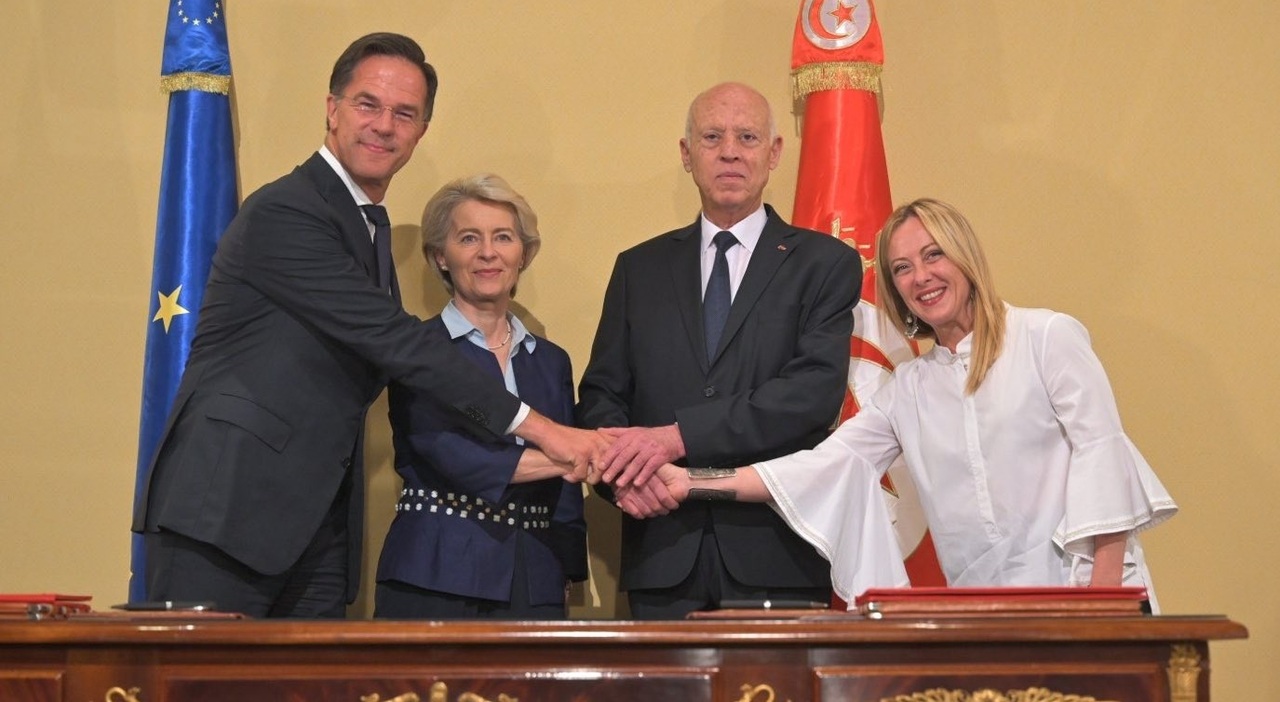The third is good. At the end of a long and far from obvious negotiation, an agreement was signed yesterday in Tunis between the European Commission and President Kais Saied. The agreement was strongly backed by Prime Minister Giorgia Meloni (yesterday on her third trip to the North African country in less than a month) who was the first to say she was convinced of the need to face the crisis involving the two shores “in an integrated way”. Mediterranean, managing to convince on principle not only the leader of rue de Berlaymont Ursula von der Leyen but also the Dutch Prime Minister Mark Rutte. The latter is a fundamental element because for an “agreement that was unthinkable until a few months ago” the ball is now in Brussels, with the memorandum to be voted on by the 27 leaders.
On the other hand, with the emergency landings which is putting a strain on hotspots and territories, and after months of European and Tunisian harassment, Meloni could not fail to seek further acceleration. A multi-point sprint that will continue this Sunday, July 23, when an international conference on migration will be held in Rome which will be attended by several African leaders, including Saied himself. It is no coincidence that Meloni herself defined the one signed yesterday as “a model” for relations between the EU and the countries of North Africa.
IT WILL BE REMEMBERED
The agreement proposed to Tunisia by the three (renamed “team Europe”) will bring about 105 million euros to the state coffers. Resources which, von der Leyen clarified, will be invested “in anti-trafficking operations, increased coordination in Sar operations and border control and simpler repatriations in full compliance with international law”. What this means pragmatically for the thousands of migrants who try to reach Europe every week is too soon to say but, according to various testimonies, the pushbacks to Libya have already begun, in the desert along the south-eastern border.
COLLABORATION
However, the text is necessarily more complex and includes, distinguishing itself from a similar agreement signed with Ankara in 2016, “a comprehensive partnership package” which includes 5 pillars: macro-financial assistance, economic relations, sustainable energy partnership, promotion of exchanges between Tunisian and European companies and, of course, migrations. “A starting point” according to Meloni who, like the other EU leaders, invites Saied to modernize the country to break the inflationary dynamic (for months above 10%) which risks throwing Tunisia into chaos and causing new departures. Net of the optimism and the meeting points found with the EU, the Tunisian situation remains a very complex situation, bordering on dictatorship. So much so that even the macro-financial assistance promised by Brussels is currently limited to 150 million euros, with a further 900 that will be released only if Tunis, by carrying out the required reforms, overcomes the stalemate with the International Monetary Fund, obtaining the loans of 1.9 billion dollars that Saied has so far – mainly due to the intervention of the United States – been denied. A further step forward which, however, at this stage appears anything but obvious. Also because the Tunisian president took advantage of yesterday’s final declarations at the Carthage palace for a new thrust against the IMF, accusing it of “having divided the world in two: one half for the rich, one half for the poor”.
Memorandum of understanding between the EU and Tunisia in the presence of Meloni, von der Leyen, Rutte and Saied
The hope is that an “induced” development can simplify the approach of positions. For this reason, the portion of the green energy agreement that combines the EU’s need to diversify supplies as a result of the war in Ukraine with the opportunity for Tunisia to give life, with European investments and know-how, is considered particularly relevant. to the development of renewables. With the advantage for Italy of being able to apply to be, with the Elmed electricity interconnection project, Tunisian energy hub for Europe.
Read the full article
on The Messenger
